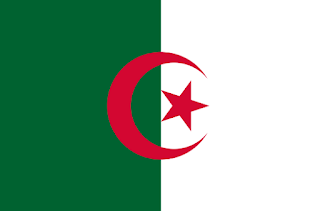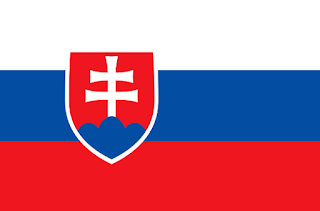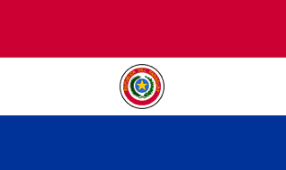FACTS ABOUT CHAD
AMAZING
FACTS ABOUT CHAD
1.
The official name of Chad is the “Republic
of Chad”.
2.
N'Djamena is the capital city of Chad.
3.
The total population of Chad is 11,852,462.
4.
The natives of Chad are called Chadians.
5.
The Central African CFA franc (XAF) is
the official currency of Chad.
6.
Chad shares a border with Niger, Libya,
the Sudan, the Central African Republic, Cameroon, and Nigeria.
7.
Chad attained its independence from
France on August 11th, 1960.
8.
Chad is the largest of the 16 landlocked
countries in Africa. It is also the 21st largest nation in the world.
9.
The country (historically, the area
surrounding Lake Chad) has been inhabited since at least 500 B.C.
10.
The Chadian and Libyan conflict took
place between 1978 and 1987.
11.
People of Chad use Kakaki, a long metal
trumpet in traditional ceremonial music. The instrument signifies power and is
always played by men.
12.
The Sahara Desert covers much of
northern Chad and occupies roughly 1/3rd of the country’s total area.
13.
Grains including millet, sorghum, and rice
are staple foods of Chad.
14.
The country has seen long-lasting
conflicts between Muslims and Christians.
15.
The Tibesti Mountains are home to some
of the best camel racing in the world.
16.
The country has never been able to make
it to the FIFA World Championships. However, they have had some popular soccer
players.
17.
For every 23,600 people in Chad, there
is only one Chadian doctor available.
18.
Chad has one of the highest maternal
mortality rates in the world. 1,100 mothers die per 100,000 births.
19.
Chad is also known as “The Babel Tower
of the World.“
20.
The country was a part of France’s until
1960.
21.
The design of the flag of Chad was based
on the flag of France.
22.
The goat and lion are the national
symbols of Chad.
23.
The country has also seen three decades
of civil war.
24.
The country is named after Lake Chad.
Surprisingly, the lake is the largest wetland in Chad and the second largest in
Africa.
25.
It is also the world’s seventeenth
largest lake.
26.
The lake has drastically reduced in size
in recent times. In the 1960s, it covered an area of 25,000 square kilometers,
which has reduced to 1,350 kilometers today.
27.
The lake is an important source of water
for millions of people in the four (Niger, Chad, Cameroon, and Nigeria.)
neighboring countries. The lake was once the center of Africa’s lucrative salt
trade.
28.
The best time to visit the Lake Chad is
between August and December. During this time, the water level in the lake is
at its highest and visitors have a chance of sighting a crocodile or hippo.
29.
The only television station in the
country—Tele-Tchad—is state owned. Radio is the main source of media coverage.
30.
There were more than 250,000 Sudanese
refugees in Chad during 2011, as estimated by the UN.
31.
Sadly, Chad is one of the poorest and
most corrupt countries in the world.
32.
Crude oil has been the primary source of
the country’s economy since 2003. Earlier, cotton played a significant role in
bringing wealth to the nation.
33.
Chad is home to some of the most
important African Archaeological sites dating back earlier than 200 BC. These
sites are mainly in the Borkou-Ennedi-Tibesti Region.
34.
America is one of Chad’s largest
investors.
35.
In 1971 the University of Chad was
founded.
36.
Bili bili (millet beer) and fruit juices
are Chad’s traditional drinks.
37.
Chad’s landlocked location results in
high transportation costs for imported goods.
38.
Majority of Chad’s fuel is supplied by
one local refinery.
39.
A $4 billion pipeline linking Chad’s
oilfields to terminals on the Atlantic coast was completed in 2003.
40.
Idriss Deby is Chad’s current president.
He assumed office for the first time in 1990.
41.
The people of Chad are called Chadian.
42.
Chad has ample reserves of gold and
uranium.
43.
The Central African Franc (XAF) is the
currency of Chad. It was introduced in 1945.
44.
Chad, by land area is world’s 21st
largest country.
45.
The country is also called “The Dead
Heart of Africa” because of its closeness to the deserts.
46.
In terms of area, it is the fifth
largest country in Africa.
47.
Islam arrived in the country in 1085.
More than 200 ethnic groups reside in Chad.
48.
Lakes of Ounianga are a UNESCO World
Heritage Site in Chad. The Lakes of Ounianga comprises a total of 18 lakes.
These lakes feature different colors (blue, green, red) that vary due to the
differences in their chemical compositions.
49.
The country’s highest peak – Emi Koussi,
at 3,415 meters – lies in northern Chad.
50.
Zakouma National Park is Chad’s first
national park and has been nominated by the Chadian government to become a
UNESCO World Heritage Site.
51.
The Nile perch, one of the largest
freshwater fish, is native to Lake Chad. It can reach a maximum length of up to
2 meters and weigh up to 200 kg.
52.
Albert Pahimi Padacké became the Prime
Minister of Chad on February 15th, 2016.
53.
About 87% of Chad’s rural population
lives below the poverty line.
54.
There were more than 400,000 severely
food-insecure people living in the rural regions of Chad in 2015.
55.
Presently, Chad is home to at least
20,000 Nigerian refugees, 100,000 Central African Republic refugees and 360,000
Sudanese refugees.
56.
Only 1/3rd of the
country’s adult population is literate.
57.
UNICEF estimates that 147,000 children
in Chad currently suffer from Severe Acute Malnutrition.
58.
Chad Exports: oil,
livestock, cotton, sesame, gum Arabic and shea butter.
59.
Chad Imports:
machinery and transportation equipment, industrial goods, foodstuffs and
textiles.
60.
The internet country code for Chad is .td.




Comments
Post a Comment